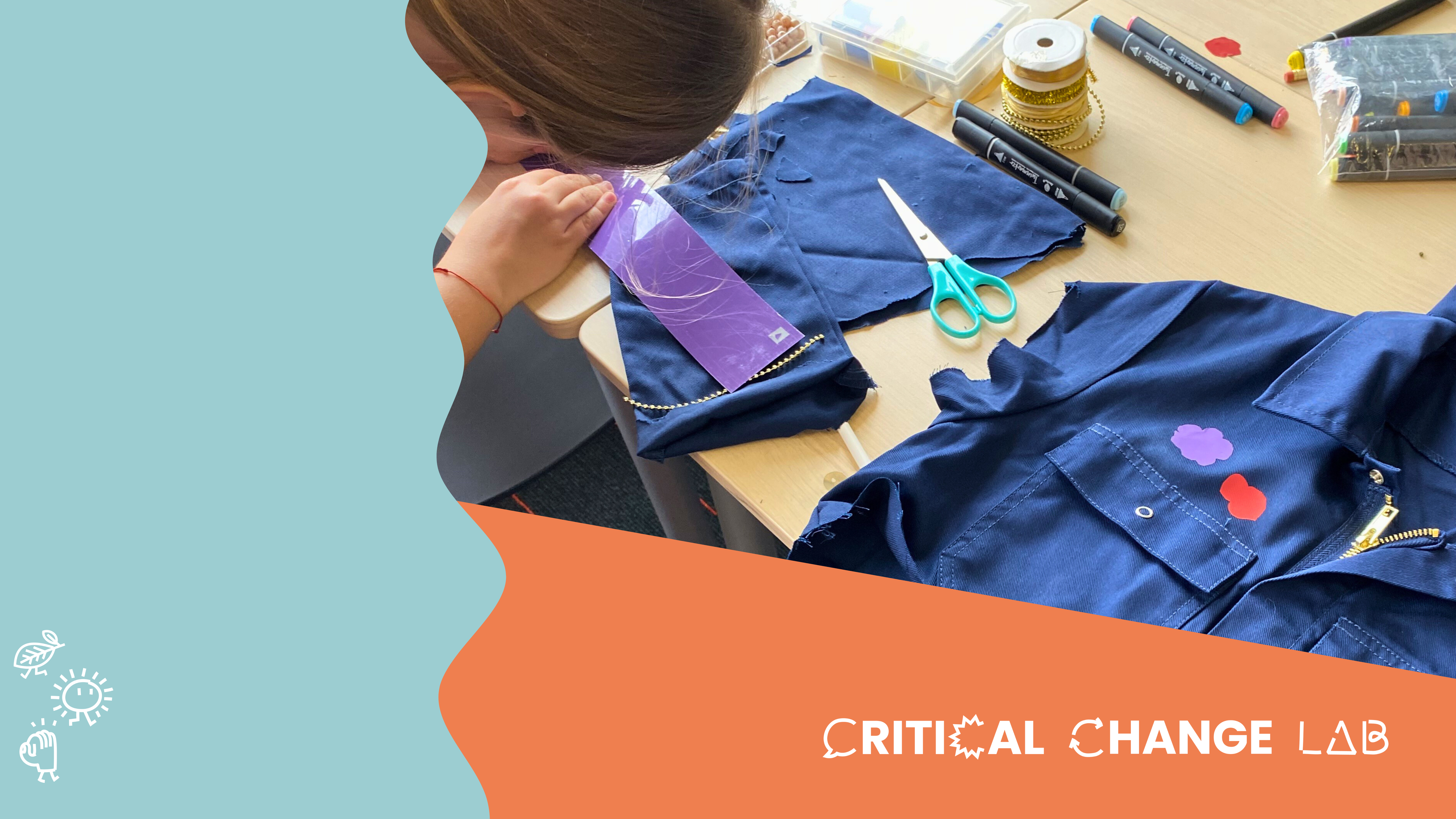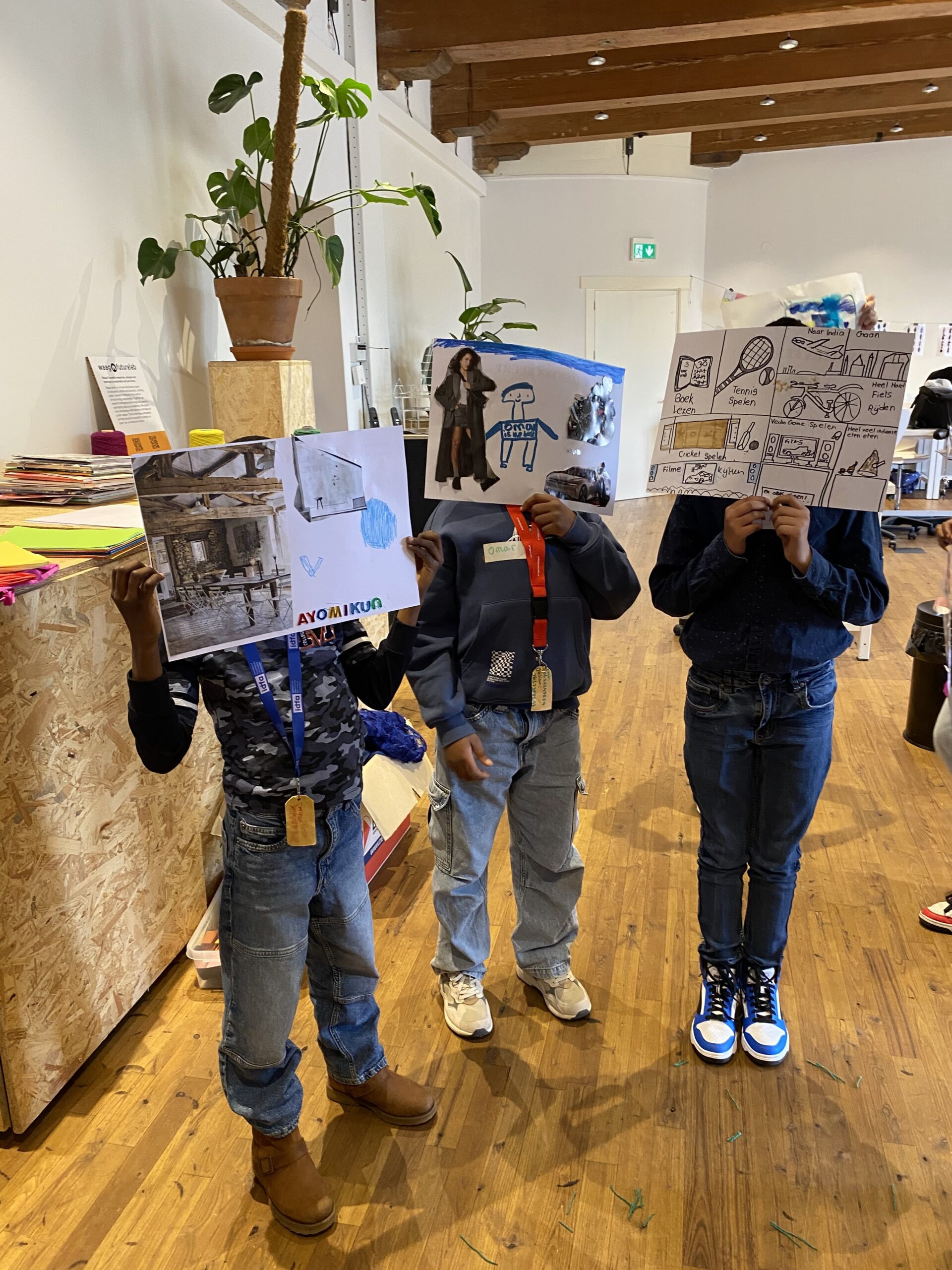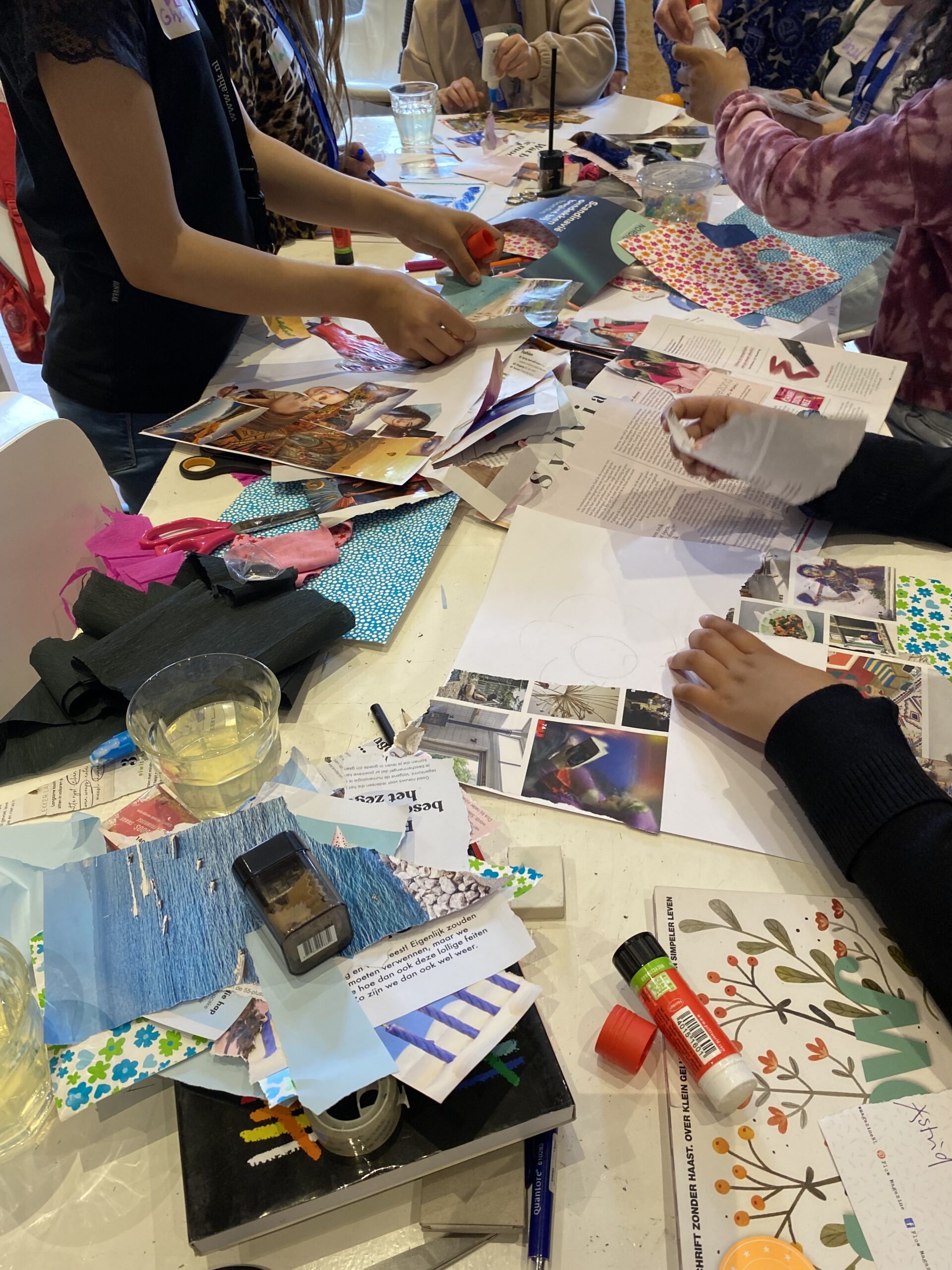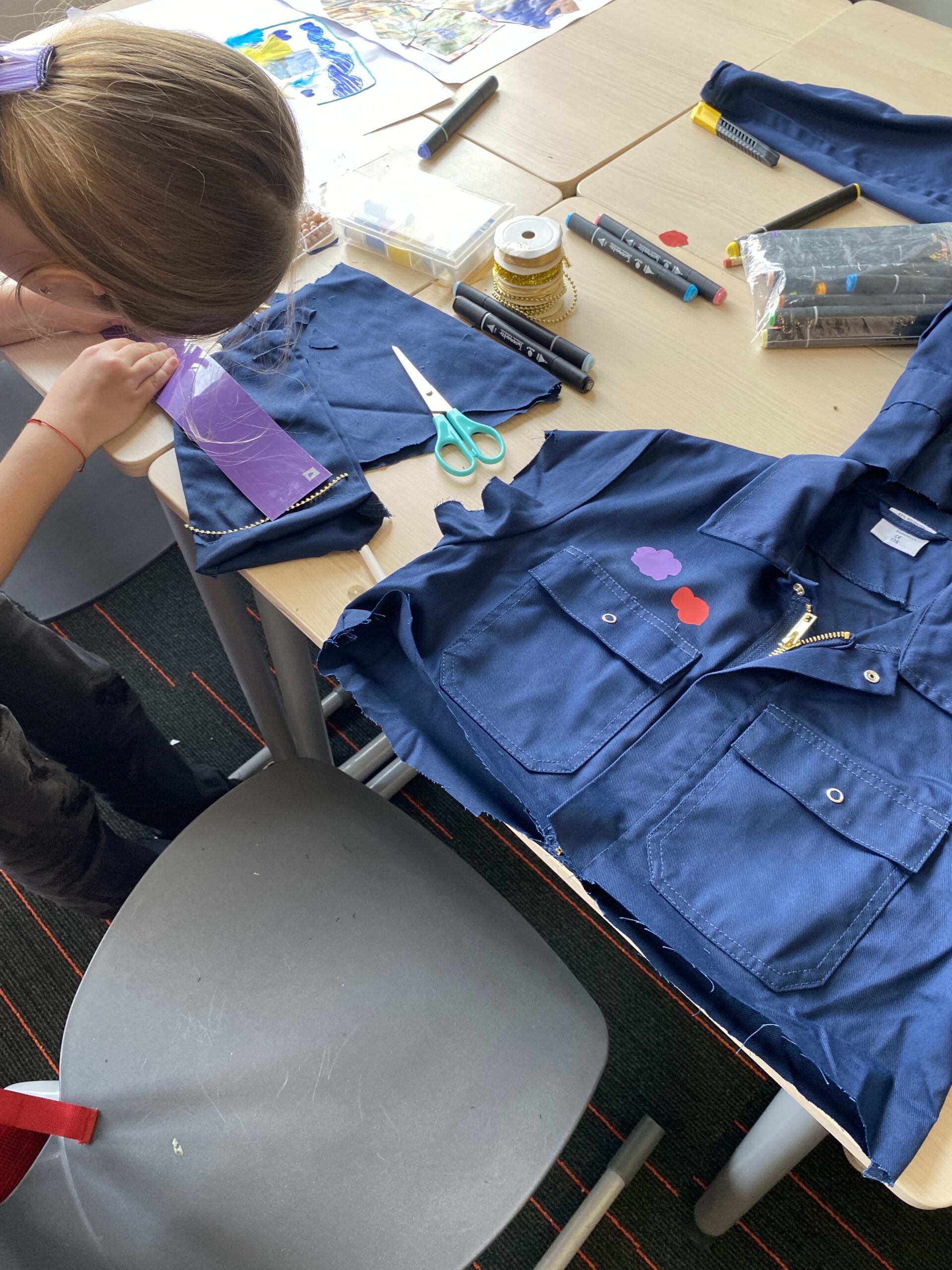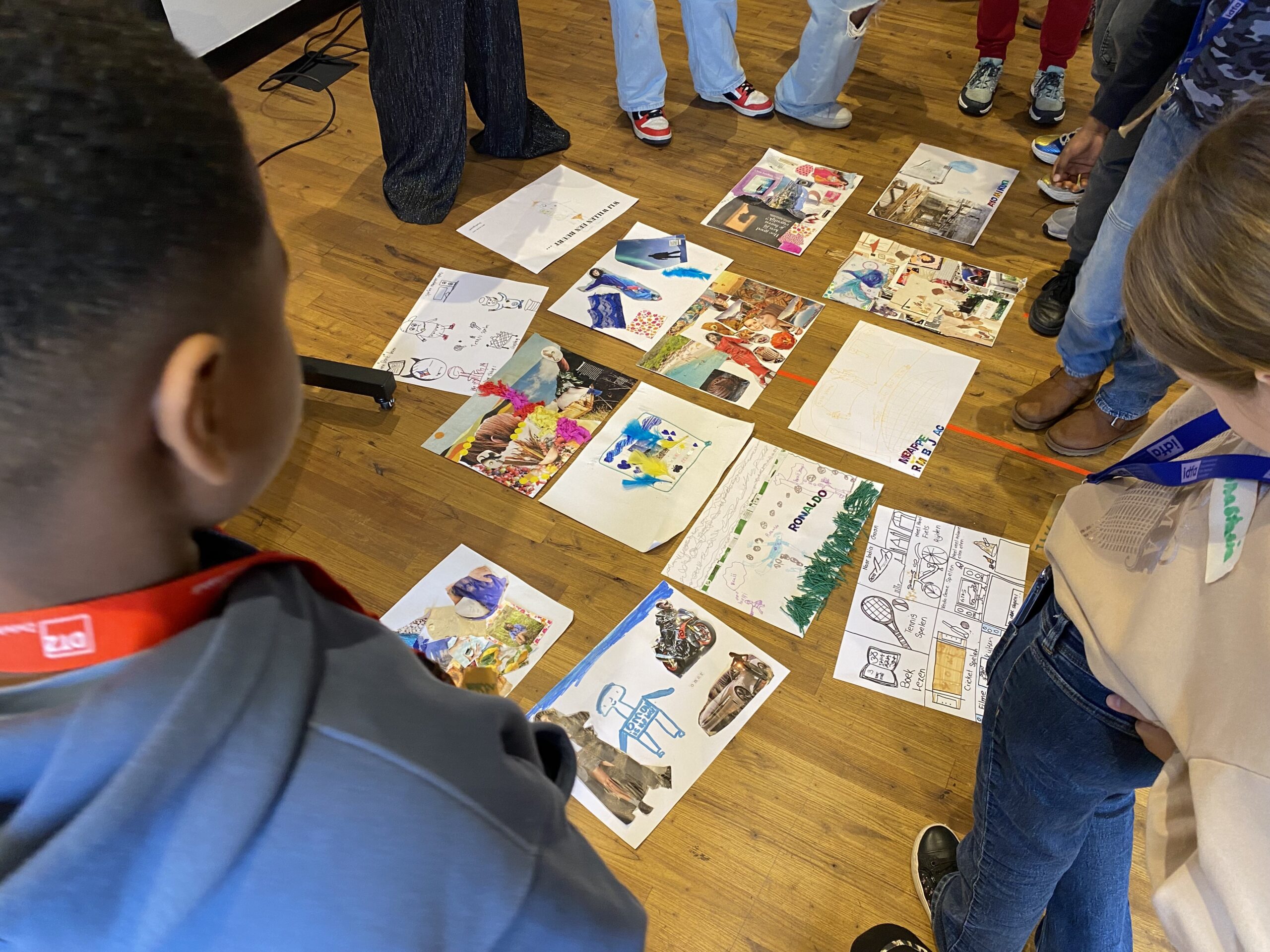Being a citizen in a democratic society is hard work – it takes effort. Especially at a time when big corporations are alongside the state and influence what we do and think. In a functioning, democratic society, everyone has a voice when important decisions are being made. But it is not always felt that way, especially when you are under 18, descendant of refugee parent, and you are not allowed to vote yet.
Waag is holding a Critical ChangeLab in Amsterdam in which ‘identity’ and ‘agency’ function as main point of departure. How can we let children and young people understand how democracy works, and what it means to be citizen in the Netherlands? And how can maker education contribute to this learning experience? As Waag Futurelab’s mission is to enable as many people as possible to design an open, honest and inclusive future, the concept of agency is at its core.
Context and participants
In the first PAR Cycle, we worked with children from the so-called Dutch ‘Weekendschool’. This Weekend School provides language education to children that come to the Netherlands as refugees. The group that participated in our Critical ChangeLab consisted of 15 pupils in the age of 11, 12 and 13. Since the participants came from 11 different countries and arrived in the Netherlands at different times, agency is especially important. At a time of polarization, learning democracy by participation is crucial and urgent. By viewing young refugee children as active citizens, it creates space for their voices.
Maker education as approach for understanding democratic principles
Waag believes that in order to understand democracy, you have to experience it. Learning by doing. That’s why Waag opts for experiential learning. Besides experiential learning, Waag argues that agency, ownership and active citizenship all starts with actual making (with your hands!).
In this very first Critical ChangeLab we asked the participants to design a costume for the group. After creating a mood board that visualised their identity, they were given the challenging task of bringing together the different identities with everyone’s input. They had to create one costume that somehow represented their own group identity. The base for the costume was a blue overall and children had tools to completely customise the model, colours, and shape. They could sew, glue or iron all sorts of thing on it. During this whole process there were many decisions to be made. The challenge was to do this is the most equal way, everyone had to have a say in it. This approach ensured that all voices were heard and valued.
“No, no, no, no. Not everybody is equal. Nobody is equal.”
Maryam (aged 11)
To make the concept of ‘democracy’ more tangible, we handed them a few key democratic principles: the right to vote, anonymous or not, choose a representative, persuade or give someone else the mandate to make a decision for them. All tools were meant to help them with the process of decision-making.
Challenges, learnings & feedback
For these children, the creative (and messy) process intrinsic to maker education combined with experiential learning worked well because these children do not have a common language (literally) to have conversations or discussions. Communication happened through gestures, body language and by making visual what needed to be done.
“What does ‘most votes count’ mean for the minority?”
Alp (aged 12)
In order to create an actual learning experience, reflection is key. Because we are commonly used to reflecting in language, this made it very difficult to get a handle on the children’s learning process. Given the difficulties for the children to find a common language, facilitators were required to be alert and spot small democratic moments and respond to them immediately.
Ansh (aged 12)
“Making decisions yourself is easy. Making decisions together is hard.”
Democracy is very difficult, even within a classroom. Putting aside established role patterns and creating a climate where every voice counts requires a lot of effort. Citizenship cannot be learned from a book. Citizenship involves a huge number of intertwined skills, knowledge and an open learning attitude.
Next steps
In the first PAR Cycle, the main focus was on understanding democracy by experiencing democracy. In addition, by giving them principles and using them, we facilitated the experience of what their own role can be in democracy. An interesting next step is that we will work with Dutch high school children (aged ±16) in PAR Cycle 2. With them, we will have in depth-conversations about democracy in their daily lives and in the future.
Join our newsletter to continue to be updated on what we’re up to at #CriticalChangeLab. We’ll always keep it interesting, and only send you updates for as long as you want us to.
